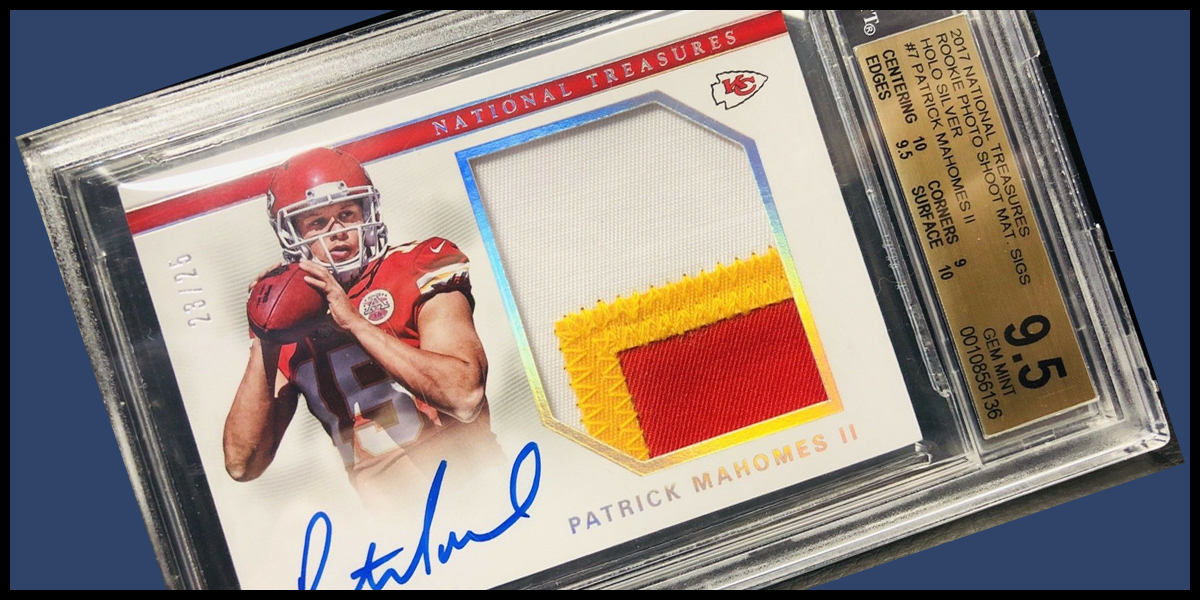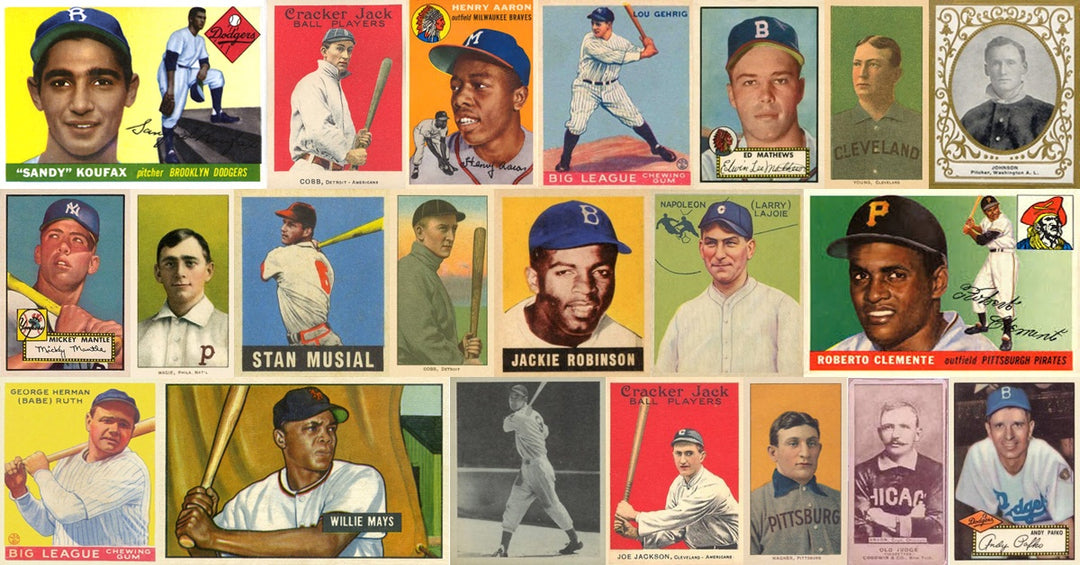What Does Rpa Stand For In Sports Cards?

If you’re a sports card enthusiast, you may have come across the acronym RPA and wondered, “What does RPA stand for?” Well, fear not, because I’m here to shed some light on this mysterious abbreviation. RPA stands for “Rookie Patch Autograph,” and it’s a term that carries a lot of significance in the world of sports cards.
When it comes to collecting sports cards, rookies are always highly sought after. These are the cards featuring athletes in their first year of professional play, and they hold a special place in collectors’ hearts. But what makes an RPA even more valuable is the addition of a patch and an autograph. The patch is usually a piece of the player’s game-worn jersey, while the autograph adds a personal touch from the athlete themselves.
So, when you come across a sports card labeled as an RPA, you know you’re looking at something special. These cards combine the excitement of a rookie player with the uniqueness of a patch and the authenticity of an autograph. They are highly prized by collectors and often command top dollar in the market.
Now that you know what RPA stands for, it’s time to dive deeper into the world of sports card collecting and discover the fascinating stories behind these coveted treasures. Join me as we explore the intricacies of this hobby and uncover the secrets of the RPA phenomenon.

What Does Rpa Stand for in Sports Cards?
If you are an avid collector of sports cards, you may have come across the term RPA. But what does RPA stand for and why is it important in the world of sports card collecting? RPA stands for Rookie Patch Autograph. It refers to a specific type of card that features a patch of a rookie player’s jersey along with their autograph. These cards are highly sought after by collectors due to their rarity and value.
When it comes to sports card collecting, rookie cards hold a special place in the hearts of collectors. They represent the first cards of a player in their professional career and often become valuable investments over time. RPA cards take this a step further by combining the rookie card status with a piece of the player’s jersey and their autograph, creating a unique and highly desirable collectible.
What Makes RPA Cards Special?
RPA cards are considered some of the most valuable and sought after cards in the sports card collecting hobby. There are a few key factors that contribute to their special status:
Rarity:
RPA cards are typically produced in limited quantities, making them rare compared to other types of cards. The limited supply and high demand among collectors drive up their value in the market.
Authenticity:
With the inclusion of the player’s autograph and a patch from their jersey, RPA cards offer a level of authenticity that sets them apart from other cards. The autograph adds a personal touch from the player, while the jersey patch serves as a tangible piece of the player’s on-field or on-court action.
Investment Potential:
Due to their rarity and popularity, RPA cards have proven to be solid investments for collectors. As rookie players establish themselves in their respective sports and gain recognition, the value of their RPA cards can increase significantly over time. Collectors often view these cards as long-term investments with the potential for substantial returns.
How to Identify RPA Cards
Identifying RPA cards in the vast world of sports card collecting can be a daunting task, especially for beginners. However, there are a few key characteristics to look for when trying to determine if a card is an RPA:
Player Designation:
RPA cards usually feature a prominent rookie designation on the card, indicating that it is the player’s first-year card. This designation can come in the form of a specific logo or text on the card.
Patch and Autograph Placement:
The presence of a jersey patch and an autograph on the card is a clear indication that it is an RPA. The patch is typically positioned in a way that allows it to stand out and showcase a portion of the player’s jersey, while the autograph is often placed strategically on the card.
Card Manufacturer:
Certain sports card manufacturers are known for producing RPA cards more frequently than others. Researching the different manufacturers and their products can help collectors identify potential RPA cards more easily.
Now that you have a better understanding of what RPA stands for in sports cards, you can appreciate the significance and value of these unique collectibles. Whether you are a seasoned collector or just starting out, RPA cards offer a thrilling and potentially profitable addition to your collection. So, keep an eye out for these special cards and enjoy the excitement they bring to the world of sports card collecting!
Key Takeaways: What Does RPA Stand for in Sports Cards?
- RPA stands for “Rookie Patch Autograph.”
- RPA cards are highly sought after by collectors.
- They feature a patch of the player’s jersey and an autograph.
- RPA cards are usually limited in number, making them more valuable.
- They are often considered the most desirable cards for rookie players.
Frequently Asked Questions
What is RPA in sports cards?
RPA stands for Rookie Patch Autograph in the world of sports cards. It refers to a specific type of card that features a patch of the player’s jersey or other memorabilia, along with the player’s autograph. These cards are highly sought after by collectors due to their rarity and the combination of a player’s rookie status, autograph, and game-worn patch.
RPA cards have gained immense popularity in recent years, especially in the sports trading card market. They offer a unique and tangible connection to the player, making them valuable additions to any collection. The combination of the player’s autograph and a piece of their game-used jersey makes RPA cards truly special and highly desirable among collectors and fans alike.
Why are RPA cards so highly valued?
RPA cards are highly valued for several reasons. Firstly, they often feature a player’s autograph, which adds a personal touch and increases the card’s collectability. Second, the inclusion of a patch from a player’s game-worn jersey or equipment adds rarity and uniqueness to the card. Collectors appreciate the tangible connection to the player’s career that these patches provide.
Furthermore, RPA cards are typically produced in limited quantities, making them scarce and highly sought after. The combination of a player’s rookie status, autograph, and game-worn patch makes RPA cards highly desirable among collectors, driving up their value in the sports card market.
How can I identify an RPA card?
Identifying an RPA card can be relatively straightforward if you know what to look for. Firstly, check if the card features the player’s autograph. Most RPA cards will have the player’s signature somewhere on the card. Additionally, look for a patch or piece of game-worn memorabilia. This can be in the form of a jersey swatch, a piece of a player’s glove, or any other equipment associated with the sport.
RPA cards often have a distinct design or labeling that indicates their status as Rookie Patch Autographs. Look for words like “RPA” or “Rookie Patch Autograph” on the card. However, it’s important to note that not all rookie cards with patches and autographs are considered RPA cards. The term specifically refers to the combination of a rookie, autograph, and patch in one card.
Are RPA cards limited edition?
Yes, RPA cards are typically produced in limited quantities, making them highly sought after by collectors. The exact number of cards produced can vary depending on the specific set or product. Some RPA cards may have a serial number on them, indicating the card’s unique place in the production run.
The limited edition nature of RPA cards adds to their collectability and value. Collectors often prioritize acquiring these cards due to their scarcity and the combination of a player’s rookie status, autograph, and game-worn patch. Limited supply and high demand contribute to the elevated value of RPA cards in the sports card market.
What factors affect the value of RPA cards?
Several factors can influence the value of RPA cards. Firstly, the player’s performance and popularity play a significant role. Cards featuring highly skilled and popular players tend to be more valuable. The success and recognition of a player can greatly impact the demand for their RPA cards.
The condition of the card is another crucial factor. Cards in pristine condition, known as gem mint, are generally more valuable than those with visible wear or damage. Additionally, scarcity and rarity contribute to a card’s value. Limited production runs, low serial numbers, and unique patches or autograph variations can all increase the desirability and value of RPA cards.
Basic Sports Card Terms : Rookie Base, Numbered, Parallels, RPA
Final Thought on What Does RPA Stand for in Sports Cards?
So, now you know what RPA stands for in sports cards. It’s an abbreviation that card collectors and enthusiasts often come across. RPA stands for “Rookie Patch Autograph.” It refers to a type of sports card that features an autograph from a rookie player along with a patch of their jersey or equipment.
RPA cards are highly sought after by collectors due to their rarity and value. These cards combine the excitement of a rookie player’s autograph with a piece of their game-worn gear, making them a unique and valuable addition to any sports card collection.
Whether you’re a seasoned collector or just starting out, understanding what RPA stands for is crucial in navigating the world of sports cards. So, keep an eye out for these special cards and add them to your collection for a truly prized possession.






